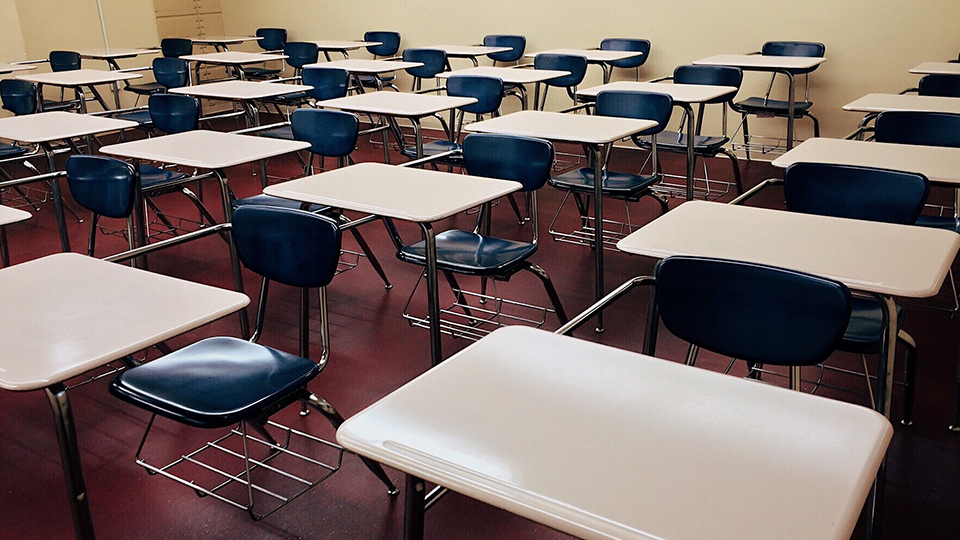Legislation would require districts to share property tax revenue
Subscriber Benefit
As a subscriber you can listen to articles at work, in the car, or while you work out. Subscribe Now
A long-awaited bill to require Indiana school districts to share property tax dollars with charter schools has attracted attention and scrutiny from groups that disagree about which schools should benefit from public funding.
The proposal is the latest sign that lawmakers might direct more public dollars to support school choice this budget session. Proponents characterize this strategy as funding students instead of systems, while opponents argue it leaves fewer resources for the nearly one million students in Indiana’s traditional public schools.
Under current state law, charters do not receive a portion of the funding that districts can collect from property taxes, and can’t put their own referendums to raise operating revenue to voters.
Senate Bill 398, authored by Republican Sen. Linda Rogers of Granger, would require districts to share some of that tax revenue, though Rogers made changes that significantly pare down the scope of the proposal.
Beginning in 2024, districts would need to share any revenue from local property taxes earmarked for operating expenses that’s above the average they received from 2021 to 2023 with charter schools in the same or contiguous counties.
Rogers’ bill would require charter schools to hold public hearings on their budgets, and to set up operations funds to receive referendum dollars, which would only be available for a list of qualified expenses related to buildings, transportation, and technology.
The Senate Tax and Fiscal Policy committee did not vote on the bill Tuesday. Rogers said she would be open to meeting with the members of the public who came to testify to discuss the bill further. House lawmakers are considering a similar bill.
“To me, it’s simply unacceptable that a student who chooses a different public school than the one they are geographically assigned to should receive thousands less in education funding annually,” she said during Tuesday’s hearing.
Charter supporters argued during the hearing that the current local tax system leaves them with less. Furthermore, it means that parents who send their children to charter schools don’t benefit from the property tax dollars that they might pay.
But opponents of the bill said it would be inappropriate to direct more public money to schools that don’t have measures of accountability like publicly elected school boards. They also said charter schools have access to funding sources that are unavailable to traditional public schools — such as federal and state grants, philanthropic support, and assistance from the city of Indianapolis, for example.
One such source of funds, the state Charter and Innovation Network School Grant Program, provides grants of $1,250 per charter student, lawmakers noted. Meanwhile, two federally funded grants are earmarked for charter schools’ expansion and facilities.
“If a taxpayer is not satisfied with how their tax dollars are being spent, they have an opportunity to provide input at school board meetings, or through the voting process,” David Marcotte, executive director of the Indiana Urban Schools Association, told lawmakers Tuesday. “The prospect of losing these funds to charter schools … will be a burden on many school districts in my association.”
IPS superintendent opposes ‘zero sum’ funding
The legislature has repeatedly presented “zero sum” strategies that move money from one group of students with high needs to another, Indianapolis Public Schools Superintendent Aleesia Johnson said at the hearing.
Johnson said that under the bill, the district would expect to receive around $2 million less in funding annually. She also noted that charter schools with small populations — a selling point for families — often have a higher per-pupil cost than other schools.
Independent charter schools received around $7,326 less than IPS in per-pupil funding in 2019, according to a report from the Center for Reinventing Public Education. Statewide, that gap is around $3,800, according to testimony from Kristin Grimme, senior vice president of strategy at The Mind Trust, a group that supports charter schools in Indianapolis.
But IPS was the first district in the state to share its latest 2018 operating referendum money with the Innovation Network charters considered part of the district, giving $500 per pupil to those charters.
The district has also noted that it pays more than $40 million in in-kind services to support charters within its Innovation Network.
IPS also covers facilities and transportation costs for 15 of its 24 Innovation charters, most of which comes from the district’s operating fund, Johnson noted on Tuesday.
Still, charter school leaders and pro-charter organizations have argued that a meaningful disparity exists.
In Indianapolis, the IPS school board’s decision last month to delay a vote on a new operating referendum came after high-profile lobbying from the charter school community that charters should benefit more from the referendum. The latest IPS referendum pitched by district officials would have shared more of the additional revenue with Innovation charters than the district initially offered, but none with independent charters.
Other proposals for funding on the table
The legislature is considering several other proposals that would affect local funding and resources for schools.
House Bill 1498 would place a one-time cap of 5% on operating referendum revenue for 2024.
Meanwhile, Senate Bill 391 would compel districts to make their underused school buildings available to charter schools. The bill is scheduled for a vote in the Senate Education and Career Development Committee Wednesday.
Other proposals would direct more state money to vouchers and similar programs. One such bill seeks to open the state’s Education Savings Accounts to more families, allowing them to use state tuition support dollars to attend private schools.
And House Republicans’ signature education bill this session would create career scholarship accounts for students to be used for job training with organizations other than their high schools. House Bill 1002 will be heard by the Ways and Means Committee Wednesday.
Chalkbeat is a not-for-profit news site covering educational change in public schools.
